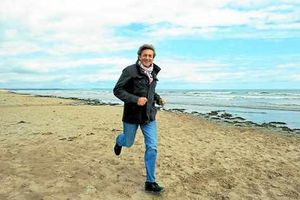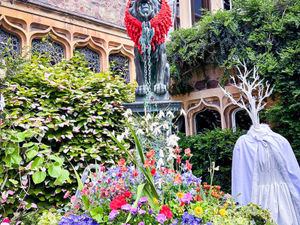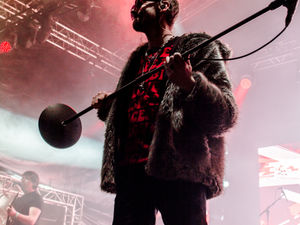The Real Chariots of Fire - TV review
There's something about classic movie Chariots of Fire which gets the emotional juices flowing, writes Carl Jones.

There's something about classic movie Chariots of Fire which gets the emotional juices flowing,
.
That raw, powerful opening scene capturing a group of desperate runners galloping like thoroughbreds along a Scottish beach. The patriotic backstory of stubborn British outcasts against the world, triumphing in the face of adversity. And, of course, that immortal, Oscar-winning electronic Vangelis soundtrack.
"The British are coming," proclaimed screenwriter Colin Welland at the 1981 Oscars, where the film emerged from relative low-budget obscurity to pick up four awards.
He was right. And, more than 30 years on, it's happening all over again as the digitally remastered film, given a 21st century makeover, returns to cinemas to cash in on Olympic fever.
Last night's lovingly crafted documentary (ITV1) gave its characters the Who Do You Think You Are? treatment, with The Charmer himself, Nigel Havers, the perfect ringmaster.
Cynics will say this documentary has been produced merely to ramp up interest in next weekend's cinema re-release.
That may be. But the inspirational stories of fiercely ambitious Jewish boy Harold Abrahams and deeply religious and principled Scot Eric Liddell running to victory at the 1924 Paris Olympic games remain as captivating as ever.
This hour-long journey, seeking to separate fact from fiction, was an intoxicating mixture of archive news footage, interviews with the film's stars and the people on whom characters were based, and vignettes from Havers, delivered with genuine fondness.
The rare video and audio of Abrahams being put through his paces by his coach, Sam Mussabini, was amazing. Like something out of a school sports day. As was the grainy footage of the actual Olympic race which saw him take gold.
And the pictures of Liddell being carried, shoulder high, through the streets of Edinburgh by his university colleagues after running what is still considered by many to be one of the greatest 400 metre races in history, were equally moving.
It's all a vivid reminder of how far we have come. Today's cosseted, mollycoddled athletes could learn much from the era when Olympic titles were won without ceremony, medals were posted a couple of weeks later, and champions were still expected to serve their countries in the war.
Mr Havers was not without fault, though. His bold statement that, without Liddell and Abrahams, there would 'possibly have been no Olympic games as we know them today' was surely a tad over-exaggerated.
And what was in his giant tan man-bag? Slung uncomfortably over his shoulder, he took it everywhere – on the cross-channel ferry, in a helicopter, and round the streets of London, Cambridge and Edinburgh. He only used an ipad and pocket notebook, for heaven's sake.
But these are merely minor gripes. For the most part, this was an absorbing, fascinating love letter to a truly rousing piece of British cinema, and amazing chapter in our sporting history.
It's no coincidence that the film's title was inspired by the lyrics of that great patriotic anthem, Jerusalem.
Whetting the appetite for all the best things which London 2012 will bring, it was almost enough to make me get off the sofa and go for a run. Almost.
Note to Lord Coe: It's not too late to ditch that dreadfully indulgent and pompous Muse track as the official anthem of this year's games, and give Vangelis a call.




